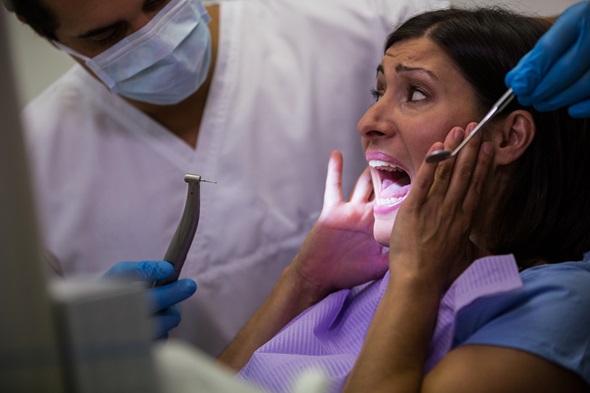Laser Dentistry

Laser Dentistry in Gurgaon: One of the many things that technology has transformed is the dental field. It is genuinely incredible how laser technology has made its way into the industry for all the right reasons. Today, dental practitioners around the world utilize laser technology for treatment and procedures, enabling them to achieve higher levels of precision while maximizing comfort for the patient.
The team at DentAesthetica takes pride in using only the best advancements available within the industry in an effort to deliver the best results possible. It does not matter if a patient is going through surgical procedures or enhancing their appearance through cosmetic dentistry. Laser technology has various applications and advantages for all kinds of patients.
What is Laser Dentistry?
As the term itself suggests, Laser dentistry refers to the use of laser technology for carrying out dental processes. Lasers have versatile uses and can be applied to soft tissues, such as gums, and underlying hard tissues, such as teeth. Tissues that are not supposed to be operated on remain intact, which greatly reduces the recovery time from the procedure. This is made possible thanks to the precision of cutting-edge technology.
Benefits of Laser Dentistry Gurgaon
- Reduced Pain: Lasers are generally less invasive than traditional therapy, meaning operations with them are often almost painless. Often, there is no need to administer anesthesia in the first place.
- Lesser Bleeding and Swelling: Excessive tampering with bodily tissues leads to trauma and tissue swelling. However, the use of laser technology helps in blood clotting, minimizing bleeding and trauma.
- Reduced Downtime: Less damage is done to the tissues, and patients have far less inflammation, hence why their recovery time is often much shorter.
- Precision and Accuracy: Thanks to the high precision of the lasers, the required areas are accurately targeted so that there is minimal loss of healthy tissue.
- Lower Risk of Infection: The risk of contracting bacterial infections is lowered during and after the procedure because of the sterilizing capability of the lasers.
Procedures That Can Be Performed In Laser Dentistry
Lasers are employed in a variety of procedures at DentAesthetica and make the procedure more efficient and comfortable as well:
- Treatment of Gum Diseases: To treat bacteria in periodontal pockets, infected tissues are removed with lasers to achieve healthy gums and bone supplementation.
- Filling Cavities: Lasers are often employed to find cavities and fillings, eliminating the need for a traditional drill and making the experience less unpleasant, particularly for children.
- Teeth Whitening: Compared to traditional methods, laser-enhanced whitening agents are more efficient and work much more quickly.
- Soft Tissue Procedures: Lasers are great tools for frenectomies, gingivectomies, and farming canker sores.
- Biopsies and Removal of Lesions: Lasers can also accurately resect tissues for biopsy purposes or remove benign lesions in the oral cavity with insignificant pain.
- Root Canal Treatment: Lasers are also used to clean root canals more effectively, shaping accurately and shortening the procedure time with lesser pain.
How Laser Dentistry Works
There are various lasers used for laser dentistry, each suited for a specific procedure. The laser uses light energy that is focused into a beam and interacts with the tissue. Laser devices can do the following depending on the wavelength and power settings:
- Cut or Shape Soft Tissues: In procedures such as gum contouring and excision of soft tissue overgrowths.
- Remove Decayed Areas: Any dental tooth destruction can be precisely conformed with lasers to the tooth alone without the surrounding healthy portion tissue being touched much.
- Enhance Depigmentation Agents In Cosmetic Surgeries: The lasers’ enhanced impact on the whitening agents has a more rapid response time.
- Procedural Sterilization: Lasers encourage tissue restoration and may remove bacteria from pockets or root canals.
What to Do to Your Oral Health After Having Laser Treatment
After undergoing a laser dentistry procedure, some aftercare measures need to be considered in order to enable healing and achieving oral health with ease:
- Observe Good Oral Hygiene: Mouth clean by e.g. brushing and flossing. Infection is prevented.
- Comply with Treatment Instructions: Diet, activity, and oral hygiene care instructions should be observed as directed by the dentist.
- Keep Regular Appointments: Regular visits help evaluate healing progress, and other issues can be raised instantly without waiting for feedback.
- Avoid Irritants: You should also avoid cigarettes, alcoholic beverages, and spicy foods because these will irritate the treated areas, delaying their healing process.
